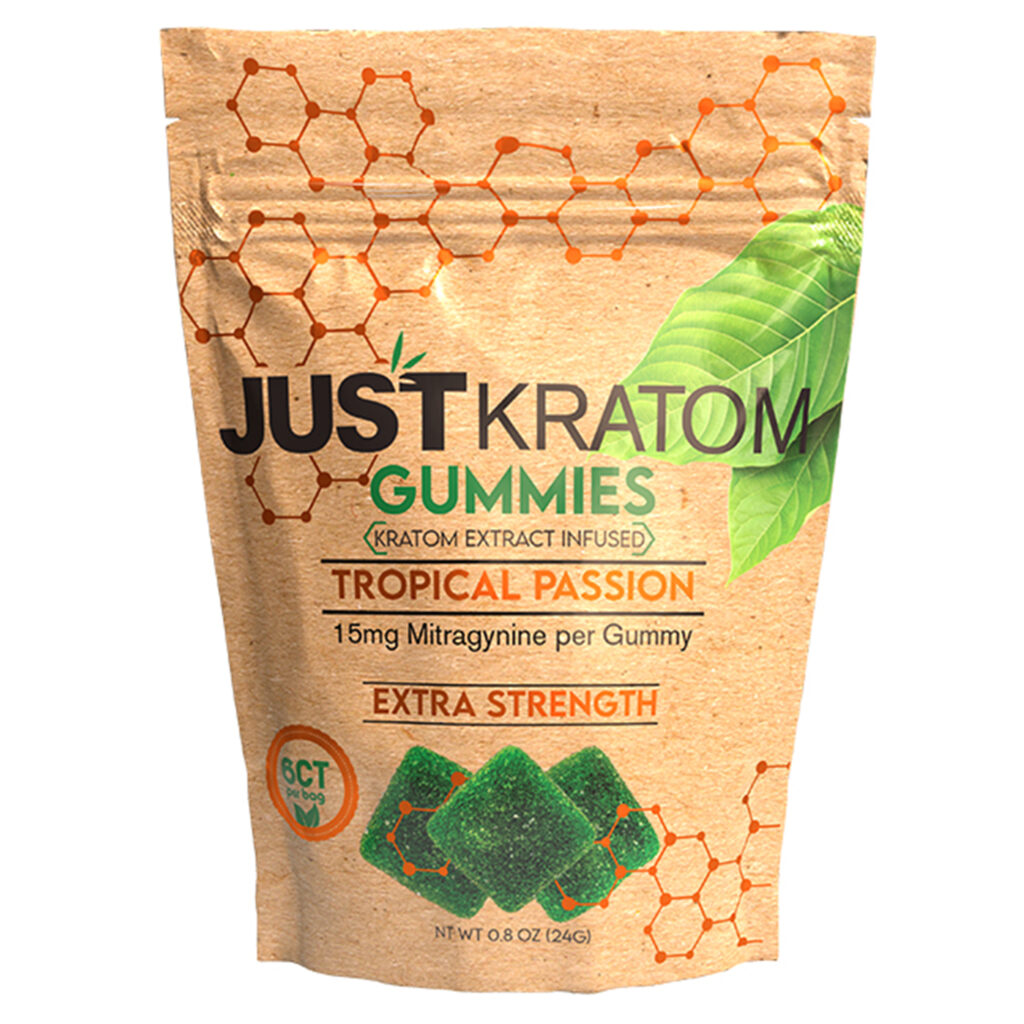Potential Pain Relief Properties

Chronic pain can significantly impact an individual’s quality of life, leading to decreased mobility, sleep disturbances, and emotional distress. In recent years, kratom has garnered attention as a potential natural remedy for pain management.
Analgesic Effects of Mitragynine and 7-Hydroxymitragynine
Mitragynine and 7-hydroxymitragynine are the primary alkaloids found in kratom, a tropical evergreen tree native to Southeast Asia. These compounds have shown promise as potential analgesics, meaning they may offer pain relief benefits. Studies suggest that mitragynine binds to opioid receptors in the brain, similar to morphine, potentially reducing pain perception. 7-hydroxymitragynine also interacts with these receptors but displays a different pharmacological profile, exhibiting both analgesic and sedative effects.
Case Studies and Anecdotal Evidence
Kratom gummies have gained popularity as a potential source of pain relief, drawing interest from individuals seeking natural alternatives to traditional medications. While research on kratom’s analgesic effects is still emerging, some preliminary studies and anecdotal evidence suggest it may offer benefits for managing pain.
Several case studies have reported positive outcomes in individuals using kratom for pain management, particularly for chronic conditions like arthritis, fibromyalgia, and nerve pain. These studies often highlight a reduction in pain intensity and an improvement in quality of life.
Anecdotal evidence from kratom users also supports its potential pain-relieving properties. Many report experiencing significant relief from various types of pain after consuming kratom gummies. However, it’s crucial to remember that anecdotal accounts are subjective and may not always reflect scientific findings.
Mood Regulation and Anxiety Reduction
Effective mood regulation and anxiety reduction are essential components of overall well-being. Individuals struggling with emotional imbalances or heightened stress often seek natural approaches to find relief.
Impact on Opioid Receptors and Neurotransmitter Activity
Kratom gummies are gaining popularity as a potential alternative for managing mood and anxiety, but their impact on the brain’s reward system warrants careful consideration. Kratom contains compounds that interact with opioid receptors, primarily mu-opioid receptors, which are involved in pain perception, pleasure, and mood regulation. By binding to these receptors, kratom can produce analgesic effects similar to opioids, as well as induce feelings of euphoria and relaxation. This activation can lead to a reduction in anxiety symptoms and potentially contribute to improved mood.
Furthermore, kratom is thought to influence the activity of other neurotransmitters, such as serotonin and dopamine, which play crucial roles in regulating mood, motivation, and pleasure. By modulating these systems, kratom may help alleviate symptoms of depression and anxiety. However, it’s important to note that research on kratom’s long-term effects on the brain is still limited, and more studies are needed to fully understand its complex interactions within the neurochemical landscape.
Research Findings on Depression and Anxiety Symptoms
Mood regulation and anxiety reduction are crucial aspects of mental well-being. Research findings have shed light on the complex interplay between depression and anxiety symptoms. Studies indicate that individuals experiencing depression often exhibit heightened levels of anxiety, while anxiety disorders can contribute to depressive episodes. This interconnectedness highlights the need for comprehensive treatment approaches that address both conditions.
Potential Cognitive Benefits
Beyond its potential pain management properties, kratom is being investigated for a range of cognitive benefits. Some proponents suggest that kratom may enhance focus, improve mood, and even offer neuroprotective effects.
Effects on Alertness, Focus, and Memory
While research on the cognitive effects of kratom is still developing, some preliminary studies suggest potential benefits in areas like alertness, focus, and memory. Mitragynine and 7-hydroxymitragynine, the primary alkaloids in kratom, are believed to influence these cognitive functions through their interactions with opioid receptors and other neurotransmitters in the brain.
Some users report increased alertness and mental clarity after consuming kratom, potentially due to its stimulating effects at lower doses. However, higher doses may lead to sedative effects, which could impair focus and memory.
Preliminary Studies on Cognitive Enhancement

While research is ongoing, preliminary studies suggest potential cognitive benefits associated with kratom use. However, it’s crucial to approach these findings with caution as more extensive research is needed to confirm these effects and understand their long-term implications.
- Some studies indicate that kratom may enhance focus and attention. This effect could be attributed to its interaction with neurotransmitters like dopamine, which plays a role in cognitive function.
- Preliminary research suggests that kratom might have a positive impact on memory. However, the specific mechanisms underlying this potential benefit are not yet fully understood.
- Certain studies have explored kratom’s potential to improve learning and cognitive performance. While these findings are promising, further investigation is required to solidify these claims.
Other Potential Health Benefits
Beyond potential pain relief, kratom gummies are also being explored for their potential benefits in managing mood and anxiety.
Anti-inflammatory Effects
Beyond its potential pain-relieving effects, kratom may offer additional health benefits, particularly in the realm of inflammation. Inflammation is a complex biological response to injury or infection, involving the release of chemicals that trigger immune cells to protect and repair damaged tissues. While acute inflammation is a necessary part of the healing process, chronic inflammation can contribute to a range of health issues, including heart disease, cancer, and autoimmune disorders.
Some preliminary research suggests that kratom’s alkaloids may possess anti-inflammatory properties. Studies have shown that mitragynine and 7-hydroxymitragynine can inhibit the production of pro-inflammatory cytokines, which are key signaling molecules involved in the inflammatory response. By reducing the release of these cytokines, kratom could potentially help mitigate chronic inflammation and its associated health risks.
Gastrointestinal Support
Kratom’s impact on the digestive system has also been explored. Some individuals report experiencing relief from symptoms associated with Irritable Bowel Syndrome (IBS) after using kratom. This potential benefit may be linked to kratom’s interaction with opioid receptors in the gut, which play a role in regulating bowel function.
Furthermore, some research suggests that kratom’s alkaloids could possess anti-inflammatory properties, potentially easing inflammation within the digestive tract, a common factor contributing to IBS and other gastrointestinal disorders.
Buy organic Kratom Gummies for balance
Dive into every detail
Check out what’s fully covered
- Forehead Frown Lines Treatment Near Kempton Park, Surrey - June 30, 2025
- Who Should Avoid Fillers? - June 29, 2025
- Flavored THC Seltzers That Don’t Taste Like Weed - June 27, 2025
